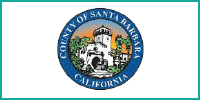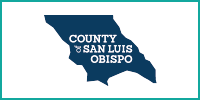Get Involved!
- It is important to be involved in our community because every person plays a role in
making their community strong. It is necessary for everyone to take responsibility for the way in which they live and to figure out how they can help others.
- Being involved within your community can help build a better place to live and improve one's value of living.
- Community involvement is mutually beneficial!
- Brings the community together
- Community involvement can help victims overcome feelings of low self-esteem, isolation, powerlessness, fear and anger.
- The process of connecting with others, confronting and overcoming real-life challenges, striving for justice and giving something because to the community can provide recovery benefits not achieved solely by traditional counseling or therapy.
Environmental Preservation and Education
- Environmentalism is a broad philosophy, ideology, and social movement regarding concerns for environmental conservation and improvement of the health of the environment.
- Advocates the preservation, restoration and/or improvement of the natural environment.
- Advocates the preservation, restoration and/or improvement of the natural environment.
- Environmental education (EE) refers to organized efforts to teach about how natural environments function and, particularly, how human beings can manage their behavior and ecosystems in order to live sustainably.
- Environmental education is a learning process that increases people's knowledge and awareness about the environment and associated challenges, develops the necessary skills and expertise to address the challenges, and fosters attitudes, motivations, and commitments to make informed decisions and take responsible action.
- Environmental education focuses on:
- Awareness and sensitivity about the environment and environmental challenges
- Knowledge and understanding about the environment and environmental challenges
- Attitude, concern for the environment and help to maintain environmental quality
- Skills to mitigate the environmental problems
- Participation for exercising existing knowledge and environmental related programs
Environmental Impacts: Beach Litter
- Plastic and other junk that ends up in the ocean washes up on beaches. Plastic is one of the main sources of litter on beaches, which can be deadly. This can be harmful to
birds and other animals that live on the shore.
- For examples, seagulls. If plastic gets mixed in with the food that these birds eat, it can hurt their stomachs.
- Plastic bags and other plastic materials are sometimes swallowed by birds, dolphins, whales and other sea life because they mistake bags for food. Animals have died from ingesting litter because it can get lodged in their systems and make it impossible for them to digest food.
- Plastic can take up to 1,000 years to biodegrade, or break down into smaller parts, once it's thrown away. So all of the plastic that ends up in the ocean sticks around for a really long time.
- Humans can be affected by beach trash as well. Litter that's thrown on the beach gets washed into the water and can contaminate it. Swimming in polluted waters can cause viral infections.
- Some plastic objects can have sharp or jagged edges. People who walk barefoot on the beach could cut themselves on trash hidden in the sand. Also, trash can carry germs that make people sick.
- Other types of litter that contaminate the ocean include raw sewage, heavy metals
and chemicals. Whether it's thrown into the ocean by boaters or leaked from large companies, this litter is a serious health risk. Food poisoning is also a potential danger if you ingest shellfish that comes from heavily contaminated waters.
- Revenue loss. People are less likely to go to the beach if it looks dirty, which means less revenue for the town or city and the businesses surrounding it. Fewer tourists and less money mean higher taxes for beach town residents.
- It costs taxpayers money to clean up after people who litter.
What Can You Do?
- Get informed and inform others about protecting our beaches!
- Eliminate plastic, drink from reusable water bottles
- Use cloth grocery bags instead of plastic ones
- Volunteer with groups that clean up beaches and rivers!
- DON'T LITTER!!
Community Resources
-
Santa Barbara County Beach and Park Clean-Up Program
-
Santa Barbara Botanical Garden
-
You can make new friends while enjoying a relaxing, peaceful environment and becoming knowledgeable about the plant and animal life of our region. We provide the training and tools for you to be successful.
-
-
Santa Barbara Museum of Natural History
- The Santa Barbara Museum of Natural History inspires a thirst for discovery and a passion for the natural world.
-
Wilderness Youth Program (WYP)
- Welcome! Wilderness Youth Project (WYP) promotes meaningful social change through an innovative, nature-based curriculum and mentoring program.
-
Coronado Butterfly Preserve
- Perhaps best known as the gateway to the Ellwood Main Monarch Grove, the Coronado Butterfly Preserve is home to the native coastal sage scrub habitat, eucalyptus groves and numerous birds and wildlife that thrive in this urban community treasure.
-
San Luis Obispo County Parks Volunteer Program
-
San Luis Obispo Botanical Garden
-
Morro Bay Museum of Natural History
Things to Do in Santa Barbara
- Visitor's Center
- For activity of a more participatory kind, hiking and bike trail maps are available at the Chamber of Commerce Visitor Center (1 Garden Street; (805)-965-3021)
- Bikes and in-line skates are available for rent at Wheel Fun rentals
- If you'd rather travel by four-legged friend, call the people at Circle Bar B Riding Stables who arrange all kinds of rides, including sunset and sunrise, English-or Western-style excursions.
- You can hit the seas with the Sunset Kidd Sailing Charters (at the breakwater; 805-962-8222), which offers day tours, seasonal whale watches, and Sunset Cruises on a 31-foot Morgan.
- The Condor (board at Sea Landing at the harbor, 888-77WHALE or 805-882-0088), operated through the Natural History Museum, is an 88-foot boat that offers educational trips with knowledgeable volunteers (during the months of February, March, and April only).
- For the more adventurous, Truth Aquatics (Sea Landing at the harbor; 805-962-1127) offers Channel Island trips including kayaking, snorkeling, scuba diving and hiking. The easiest way to kayak in Santa Barbara is to go to Santa Barbara Adventure Company, or Captain Jacks Santa Barbara Tours, or Paddle Sports of Santa Barbara.
Things to Do in San Luis Obispo
-
Farmer's Market (on Thursday evenings)
-
Art After Dark
-
Hike
-
Bubblegum Alley
-
Madonna Inn
-
Mission San Luis Obispo de Tolosa
-
Geocaching
-
Avila Valley Barn
-
Charles Paddock Zoo
-
Beaches
-
Surfing
-
Biking
-
San Luis Obispo Museums
-
History Center of San Luis Obispo County
-
Dallidet Adobe & Gardens
-
San Luis Obispo Museum of Art
-
San Luis Obispo Children’s Museum (free every 3rd Thursday of the month from 5-8 PM)
-
-
Restaurants
-
Downtown San Luis Obispo Trolley
-
San Luis Obispo Walking Tour
-
Rock Climbing
-
Kayaking




